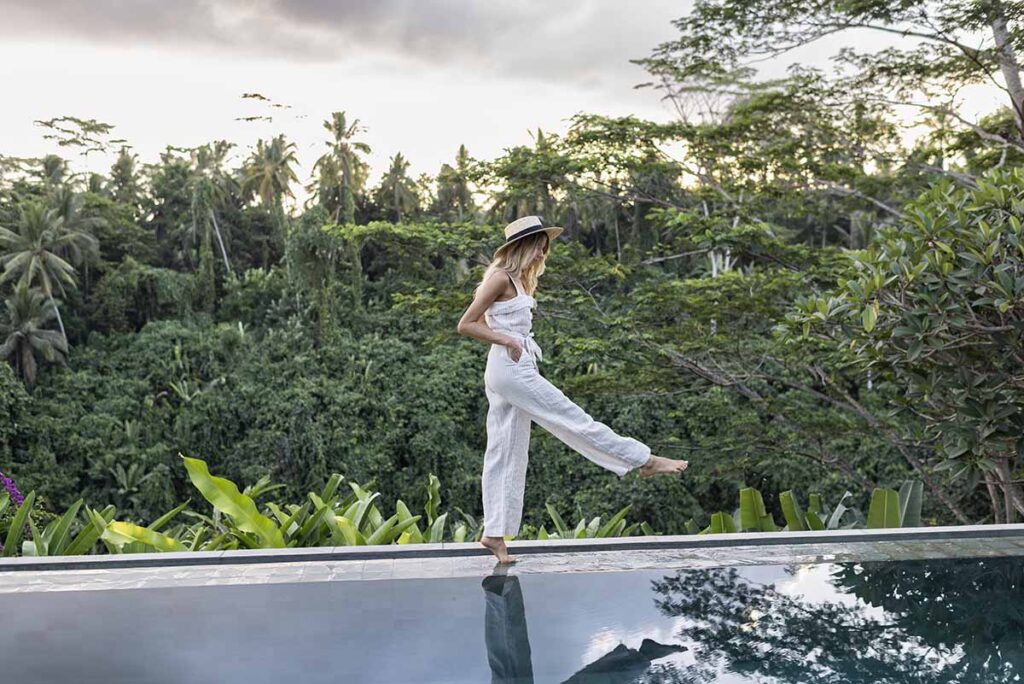
Today’s luxury travelers prioritize mental health support, nature immersions, and cutting-edge technology, signaling an era where wellness is no longer optional
In 2025, luxury travelers are making bold demands for their health and well-being. A striking 84% of affluent individuals now expect wellness services tailored to their unique health goals. Spontaneity and personalization define the new wellness landscape, with nearly 70% booking treatments on the spot during their trips, while 78% value the ability to plan ahead. These evolving preferences, revealed in the latest Buzz vs. Reality report from from International Luxury Travel Market (ILTM), Altiant, and Hyatt highlight a seismic shift in how health and travel intersect.
Gone are the days of one-size-fits-all spa retreats. Today’s high-end travelers prioritize mental health support, nature immersions, and cutting-edge technology, signaling an era where wellness is no longer optional — it’s indispensable.
A new era for wellness travel
For the report, ILTM surveyed 800 affluent travelers across six countries: the UK, US, France, China, the UAE, and Saudi Arabia. Approximately 65% of participants had investible assets equivalent to USD 1 million, with a median of USD 2.2 million.
They found that wellness has become a central focus of luxury travel, but it looks different from its past iterations. Personalized health assessments, mental health therapies, and wearable tech are reshaping the travel experience. Travelers want more than relaxation; they crave transformation. From guided forest bathing in nature reserves to sunrise yoga overlooking serene landscapes, luxury travelers are seeking out the moments that rejuvenate and inspire.
These preferences reflect broader lifestyle trends. Nearly three-quarters of respondents have incorporated wellness into their weekly routines, up from 66% just a few years ago.
Key findings driving change
Luxury travelers’ wellness preferences are clear, and they’re influencing hospitality strategies worldwide:
- Will spend more for wellness: Almost three-quarters (72%) say they are more likely to book a hotel if it has specialized options, like salt rooms or ice baths. This rises to 93% among affluent Chinese travelers. Three-quarters are also interested in wellness experiences which they have never seen before and enjoy unusual or niche wellness experiences on holiday.
- Spa therapies remain the cornerstone: 62% of respondents prioritize spa experiences, with particular interest in specialized treatments like Thalassotherapy and Ayurvedic practices.
- Nature calls: Over half (52%) are drawn to nature immersions, such as hiking or wild swimming, signaling a growing demand for outdoor, restorative activities.
- Let’s get physical: Fitness and physical treatments follow closely, with 49% seeking exercise classes and 54% interested in therapeutic interventions like acupuncture
- Mental health matters: Mental health support appeals to 33% of travelers. This includes mindfulness practices and digital detox experiences (32%).
- Data is driving experiences: Nearly 40% show interest in tailored health evaluations (e.g., sleep and diet analysis), indicating an appetite for data-driven and results-oriented wellness programs.
Regional differences are notable: French travelers lead the way in traditional spa therapy interest (85%), while Chinese and Saudi Arabian respondents are the most enthusiastic about cutting-edge health evaluations.
One staggering finding is that only seven percent of affluent travelers now say that wellness facilities have no impact on their holiday bookings. Asked “Which of the following would interest you as part of a specifically planned wellness holiday?” respondents said:
Spa resorts/therapies (e.g., thalassotherapy, ayurvedic): 62%
Physical treatments (e.g., massage, acupuncture): 54%
Exercise classes/workouts: 49%
Nature immersions (e.g., hiking, wild swimming): 52%
Yoga retreats: 40%
Mental health/performance support: 33%
Mindfulness and digital detox: 32%
Beauty treatments: 38%
Weight-loss retreats: 24%
Health evaluations (e.g., dietary/sleep analysis): 37%
Gender-specific retreats (e.g., menopause or men’s health): 22%
Activities/pursuits (e.g., golf, hiking): 51%
Detox programs: 35%
Other meditation retreats: 21%
Opportunities for hotels and resorts
For luxury hospitality providers, the message is clear: wellness is not just a trend but a strategic priority. To meet this growing demand, hotels can:
Expand personalized services: Offer tailored health consultations and bespoke treatments designed to address individual goals.
Leverage technology: Use AI and data-driven tools to deliver precision wellness, making the experience seamless yet deeply impactful.
Get creative and be unique: The more your wellness offerings stand out from the competition, the
more likely you are to attract discerning travelers who value distinct and memorable experiences that go beyond the ordinary.
Vacations are no longer about indulgence alone; they’re about purpose, health, and connection. Hotels that embrace this vision have the opportunity to redefine what luxury means, delivering transformative wellness experiences that resonate deeply and inspire repeat visits. With these insights in hand, the future of wellness travel looks as exciting as it is promising.
Read the whole report here: https://altiant.com/iltm-hyatt-buzz-vs-reality-wellness
Spa Executive is published by Book4Time, the leader in guest management, revenue and mobile solutions for the most exclusive spas, hotels, and resorts around the globe. Learn more at book4time.com.



